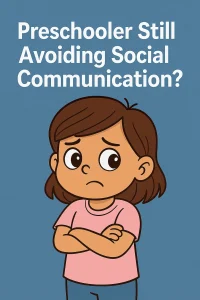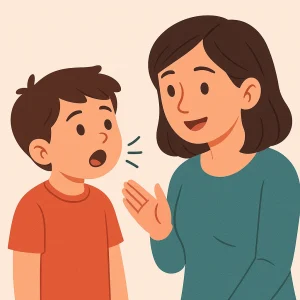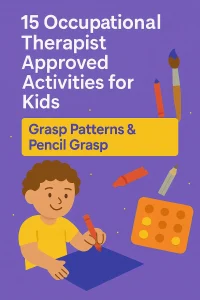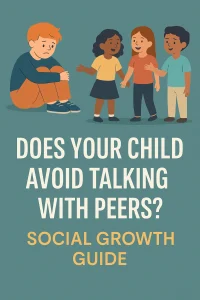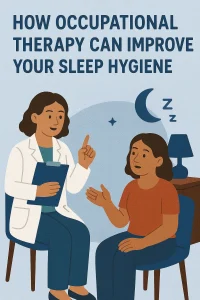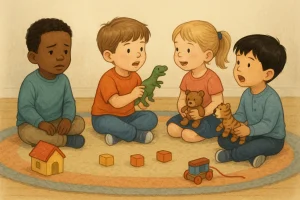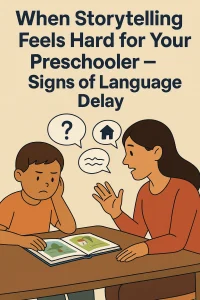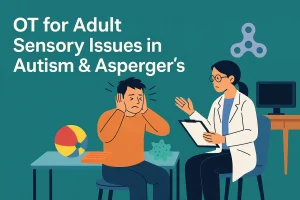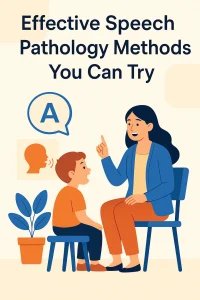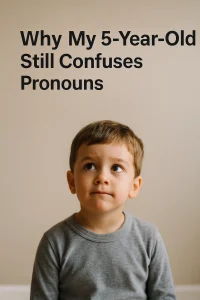What If My Child’s Speech Is Hard to Understand at Age 4?
By Wellness Hub
Last Updated: August 25, 2025
If your 4-year-old is full of energy and chatter but their words are still hard to follow — even for you or close family — you’re not alone. Many parents find themselves in this confusing stage where a child is talking, but not clearly. It’s common to wonder why your child’s speech is hard to understand at age 4, especially when strangers or teachers can’t make out what they’re saying. Whether it sounds mumbled, unclear, or garbled, this article will help you understand what’s typical, what’s not, and what you can do to support clearer speech.
At age four, children are expected to be mostly understood by strangers, with speech clarity (or intelligibility) reaching around 75–90%. But when a child’s speech is still difficult to understand at this age, it may signal an underlying issue — or it might just mean they need a little more time and support.
Whether you’re wondering “Is this normal?” or searching for ways to improve your child’s speech clarity, this guide will help you make informed, confident decisions — backed by speech development milestones and expert insights.
Free Speech Help for Kids
Concerned about speech delays? Book a free consultation with our expert speech therapist and get guidance tailored to your child’s needs.
How Clear Should a 4-Year-Old’s Speech Be?
By the age of 4, most children are bursting with stories, questions, and ideas—but what happens when their speech is still hard to follow?
When we talk about speech clarity in a 4-year-old, we’re referring to how understandable their words are to other people. In developmental terms, this is called intelligibility—how much of a child’s speech can be understood by a listener who’s hearing them for the first time.
What’s Considered “Clear Enough” at Age 4?
Experts like pediatricians and speech-language pathologists typically expect that:
- By age 3, a child’s speech should be understood about 50–75% of the time by unfamiliar listeners.
- By age 4, that jumps to around 75–90% intelligibility.
- By age 5, a child’s speech should be mostly clear—understood almost all the time, even by strangers.
So, should a 4-year-old speak clearly? Not perfectly—but clearly enough that most people outside the family can understand what they’re saying. Some sound errors are still developmentally appropriate at this stage (like saying “wabbit” for “rabbit”), but if you’re often having to “translate” what your child says to others, it might be time to take a closer look.
What Pediatricians and Therapists Look For
When a parent brings up concerns about unclear speech, professionals usually consider:
- How often you need to repeat or clarify what your child says
- Whether speech issues are affecting school, play, or social confidence
- If the child is missing certain sounds or replacing many of them with others
- Whether the speech is clear to people who don’t spend time with the child daily
They also assess whether the unclear speech is due to articulation challenges, phonological delays, or more complex issues like childhood apraxia of speech.
A Realistic Expectation for Parents
Remember: not all children develop at the exact same pace. Some may reach 90% clarity by 4, while others take a bit longer—especially if they’re shy, multilingual, or late talkers. The key is to observe whether speech is improving steadily and becoming more understandable over time.
If you’re unsure, trust your instincts and seek a speech-language evaluation. Early support can make a big difference in helping your child speak with clarity and confidence.
Why Is My Child’s Speech Hard to Understand?
“Why can’t people understand my 4-year-old when they talk so much at home?”
That’s one of the most common and heartfelt questions speech therapists hear from concerned parents—and it’s a valid one.
At age 4, children often have a lot to say. But when their words come out jumbled, mumbled, or missing key sounds, it can be frustrating—for both the child and the listener. If your child’s speech is hard to understand, there could be several underlying reasons. Let’s explore the most common ones.
1. Articulation Issues
Articulation refers to how clearly your child can pronounce individual sounds in words. Some kids have difficulty moving their lips, tongue, or jaw in the right way to produce specific sounds.
For example:
- Saying “tat” instead of “cat”
- Dropping end sounds: “do” instead of “dog”
While some sound errors are normal at age 4, frequent substitutions or omissions that make speech difficult to understand might suggest an articulation disorder. These children know what they want to say—but their mouths can’t always produce the sounds accurately.
2. Phonological Delay
This is a bit different from articulation. A phonological delay means your child has trouble understanding how sounds work together in the language.
Instead of just mixing up one or two sounds, they may follow an immature pattern, such as:
- Dropping entire syllables: “nana” for “banana”
- Repeating patterns like “gog” for “dog”
While it may sound similar to an articulation problem, phonological delays are considered a type of speech sound disorder and often need different therapy strategies.
3. Childhood Apraxia of Speech (CAS)
In more complex cases, childhood apraxia of speech may be the cause. CAS is a motor planning disorder where the brain has difficulty coordinating the movements needed for speech—even when the muscles themselves are fine.
Children with apraxia often:
- Struggle to say the same word consistently
- Have gaps between what they understand and what they can say
- Use fewer words than expected for their age
- May appear to “know” the word but have trouble getting it out
This condition is rare but important to identify early, as it often requires intensive, specialized speech therapy.
4. Hearing Issues
Sometimes the root of unclear speech isn’t how your child talks—it’s how they hear.
Even mild or recurring ear infections can cause a child to miss hearing certain sounds clearly during critical speech development stages. Over time, this can lead to:
- Mispronunciations
- Muffled or garbled speech
- Slower vocabulary growth
If your child has frequent ear infections or doesn’t always respond to sound, it’s worth scheduling a hearing test. Audiologists and pediatricians often work closely with speech-language pathologists to rule this out early.
Related Possibilities: Language Delay or Speech Sound Disorder?
Unclear speech might also be linked to a broader language delay, where the child struggles not just with pronunciation but also with using or understanding words and sentences.
Or it may fall under a general speech sound disorder, an umbrella term covering many of the conditions above.
Reassurance for Parents
If your child’s speech is hard to understand at age 4, it doesn’t automatically mean something is “wrong.” Every child develops differently. But if most people outside your home struggle to understand your child’s speech, it’s a good idea to consult a speech therapist for a proper evaluation.
Early identification—and the right kind of support—can make a world of difference in helping your child communicate clearly and confidently.
Signs You Shouldn’t Ignore in a 4-Year-Old’s Speech
It’s natural for young children to have a few mispronunciations. But how do you know when unclear speech is more than just a phase?
If you’re worried about your child’s speech, trust your instincts. While every child develops at their own pace, there are some clear signs of a speech delay at 4 that parents shouldn’t ignore.
Speech-language therapists often look for specific red flags that go beyond the occasional “cute” sound mix-up. These signs can help you decide whether it’s time to seek extra support.
Red Flags in a 4-Year-Old’s Speech
Here are the most common concerns that may suggest a delay or speech disorder:
Strangers Still Can’t Understand Them
By age 4, most children should be understood 75–90% of the time by people outside the home.
If teachers, relatives, or new friends often say, “What did they say?”, or if you’re constantly “translating” for your child, that’s a possible warning sign.
Skipping Sounds or Whole Syllables
Children with speech delays might:
- Say “nana” instead of “banana”
- Skip beginning or ending sounds, like “ca” instead of “cat”
- Blend or shorten multi-syllable words, making them hard to recognize
These patterns may seem small but can greatly impact speech clarity.
Frustration When Trying to Speak
If your child knows what they want to say but struggles to get the words out—and becomes visibly upset or gives up mid-sentence—that’s a strong signal something deeper is going on.
Frustration may show up as:
- Avoiding speaking in groups
- Meltdowns during conversation
- Saying “never mind” or shutting down
This emotional impact is just as important as the speech issue itself.
Mumbling, Slurred, or Garbled Speech
Some children speak in a way that’s technically “fluent” but still hard to follow:
- Words may blur together
- Sounds may be slushy or distorted
- Volume might drop mid-sentence
This could be related to articulation delays, oral-motor issues, or phonological processing problems—all of which a speech therapist can assess and support.
Don’t Wait and See If These Signs Show Up
Many well-meaning people say, “They’ll grow out of it,”—but that’s not always true.
If your child is 4 and showing multiple signs of a speech delay, it’s best to get a professional opinion rather than wait.
The earlier you act, the easier it is to close the gap and boost your child’s confidence.
A Note to Concerned Parents
If you’re worried about your child’s speech, know that you’re not being overly cautious. Speech and language skills are essential for learning, making friends, and expressing feelings. Seeking help early is one of the most supportive things you can do as a parent.
1. Observe and Track What’s Hard to Understand
Begin by paying close attention to your child’s speech in everyday situations. Make notes of things like:
- Specific words or sounds they always mix up
- Patterns (e.g., dropping beginning sounds like “gog” for “dog”)
- Whether they’re easier to understand at home than at school or in public
This kind of information is incredibly valuable when you consult a professional. Even a few days of observation can help identify patterns and guide support in the right direction.
2. Discuss Concerns with Your Pediatrician
Your child’s pediatrician is often the first stop when it comes to developmental concerns. They can help determine:
- Whether your child’s speech is within the typical range for their age
- If there are other developmental signs to consider
- Whether a referral to a specialist (like a speech therapist or audiologist) is needed
Make sure to bring your notes from home. Real-life examples can help the doctor understand your concerns more clearly.
3. Get a Hearing Test
Sometimes unclear speech is linked to something simple but critical—how your child hears sounds.
Even mild hearing loss from chronic ear infections can make it harder for children to:
- Hear the difference between similar sounds (like “b” and “d”)
- Learn how to pronounce new words accurately
- Pick up on sound patterns used in everyday speech
An audiologist can run a child-friendly hearing test to rule out or identify any hearing-related issues. It’s a quick but essential step.
4. Schedule a Speech-Language Evaluation
If your child’s speech is still hard to understand at age 4, it’s time to book an evaluation with a certified speech-language pathologist (SLP).
An SLP will:
- Assess your child’s speech sound development
- Identify whether it’s a delay or a speech sound disorder
- Recommend personalized therapy if needed
Speech therapy isn’t just about correcting sounds—it’s about building communication confidence and making sure your child feels understood and supported.
Taking the First Step Can Make a Big Difference
Many parents feel unsure or even guilty about asking for help. But speech delays and clarity issues are more common than you think, and getting support early can make a lasting difference in your child’s learning, social skills, and self-esteem.
So, if you’re wondering what to do if your child’s speech is unclear at 4—start by taking one step today. The sooner you act, the easier it becomes to help your child find their voice and be understood.
How Can Speech Therapy Help With Unclear Speech in Preschoolers?
If your 4-year-old is full of energy, ideas, and stories—but their speech is still hard to understand—you may be wondering:
Can speech therapy help unclear speech?
The answer is yes—speech therapy for a 4-year-old can make a significant difference. Whether your child has trouble with certain sounds, leaves out syllables, or mumbles words, a certified speech-language pathologist (SLP) can work with them to improve how clearly they speak.
And the best part? Early intervention leads to better outcomes. The sooner a child begins therapy, the easier it is to build strong communication skills that last a lifetime.
What Happens in Speech Therapy?
Speech therapy sessions are designed to be engaging, playful, and highly personalized. Therapists use a variety of strategies depending on your child’s specific needs. Here are a few of the most common techniques:
1. Articulation Practice
Many 4-year-olds with unclear speech struggle to pronounce certain sounds correctly. An SLP will:
- Identify which sounds are causing confusion (e.g., /k/, /g/, /s/, /r/)
- Teach your child how to move their tongue, lips, and jaw properly
- Use repetition, games, and visual cues to make practice fun
Over time, this helps your child learn to form words more accurately, making them easier to understand.
2. Oral-Motor Exercises
Sometimes unclear speech stems from weak oral muscles or coordination issues.
In these cases, therapists may introduce oral-motor exercises to:
- Strengthen the lips, tongue, and jaw
- Improve breath control and speech clarity
- Boost control over facial muscles used for speaking
These exercises are often disguised as fun activities—like blowing bubbles or using a straw—to keep children motivated and engaged.
3. Language Modeling and Repetition
Speech therapy also includes language modeling, where the therapist:
- Clearly repeats what your child says using correct pronunciation
- Expands on their ideas using new vocabulary
- Reinforces proper grammar and sentence structure
This teaches children how to speak more clearly through real-life examples, without pressure or correction that might discourage them.
Why Early Intervention Matters
When it comes to speech clarity, earlier is better.
Starting therapy around age 3 or 4 gives your child time to:
- Catch up with peers before school demands increase
- Build confidence in speaking with others
- Avoid potential social or emotional frustration from not being understood
Delaying support can make these issues harder to overcome later—so if you’re unsure, it’s always okay to schedule an evaluation.
How Parents Can Help Improve Speech Clarity at Home
If you’re wondering how to help a 4-year-old speak more clearly, you’re already taking an important step in supporting your child’s development. While speech therapy plays a key role, what you do at home every day can be just as impactful.
Children learn to talk more clearly through listening, watching, and practicing—and as a parent, you’re their best communication partner. The goal isn’t to correct every word, but to model clear, confident speech and gently guide them along the way.
Here are a few simple, proven techniques you can start using today.
1. Try Simple Speech Exercises at Home
There are fun and easy speech exercises for 4-year-olds with unclear speech that you can do in just a few minutes a day. These help strengthen their mouth muscles, improve sound production, and boost their confidence.
Try activities like:
- Blowing bubbles or blowing through a straw – great for strengthening lips and breath control
- Silly sound games – say words that start with tricky sounds like “s,” “k,” or “r”
- Mirror play – let your child watch how their lips and tongue move while they practice sounds
These simple activities feel like play—but they help train the muscles needed for clearer speech.
2. Read Aloud Every Day (Slowly and Clearly)
Reading aloud is one of the most powerful tools for improving speech and language.
Tips for reading with clarity:
- Choose books with rhyming words, repetition, and simple sentences
- Point to the words and pictures as you say them
- Use slightly slower speech and emphasize key sounds (“Look at the c-a-t. The cat is sleeping.”)
- Encourage your child to repeat phrases after you
This builds vocabulary, strengthens sentence structure, and helps them hear how words are supposed to sound.
3. Model Clear Speech Without Pressure
If your child says, “I want a wabbit,” avoid saying “No, it’s rabbit!” Instead, model the correct version naturally:
“Oh, you want the rabbit? Let’s find the rabbit!”
This technique, called language modeling, helps children learn through listening—without feeling corrected or embarrassed. You can repeat the correct version 1–2 times in a calm, supportive tone.
Consistency is more powerful than correction.
4. Use Visuals, Gestures, and Slow Speech
Children who struggle with speech clarity often benefit from multi-sensory learning. That means combining speech with visuals, gestures, and facial cues to help them process and express ideas.
Here’s how:
- Point to objects while naming them
- Use hand gestures (like holding up a cup when saying “cup”)
- Keep your sentences short, and speak a little more slowly to give their brain time to process sounds
This helps them connect what they see, hear, and say—leading to clearer and more confident speech over time.
Be Patient, Supportive, and Encouraging
Learning to speak clearly is a journey, not a race. Celebrate small improvements and avoid focusing on mistakes. Let your child know that what they say matters—even if it’s not perfectly clear just yet.
With a little patience, daily practice, and a warm, supportive environment, you’ll begin to see your child’s speech become more understandable and expressive.
When to See a Speech Therapist (Checklist for Parents)
As a parent, it’s normal to wonder, “Is this just a phase, or should I get help?”
If you’ve been searching when should I be concerned about my child’s speech, the fact that you’re paying attention is a good sign—you’re being proactive and involved in your child’s development.
While some speech quirks at age 4 are part of typical development, other signs may point to a need for professional support. If your child’s speech is not improving by 4, it’s important to take action early. The earlier a concern is addressed, the easier it is to help your child succeed.
Checklist: When to Consider Seeing a Speech Therapist
If you check one or more of the following, it’s a good idea to schedule a speech-language evaluation:
- Your child is 4 years old and strangers still can’t understand them
- They frequently skip sounds or syllables when speaking (e.g., “nana” for “banana”)
- You find yourself constantly “translating” what they say to others
- Their speech hasn’t improved much over the last 6–12 months
- They get frustrated or upset when trying to express themselves
- Their speech sounds mumbled, slurred, or garbled
- Your child uses fewer words than other children their age
- You notice signs of a language delay (trouble understanding or forming sentences)
- Your child has a history of ear infections or you suspect hearing issues
- You feel something’s not quite right but can’t explain exactly why
Why You Shouldn’t Wait
If your child’s speech is not improving by 4, it’s better to check in with a speech therapist than to “wait and see.” Speech-language pathologists can:
- Identify whether it’s a delay or something more
- Give you strategies to help at home
- Provide therapy to build your child’s clarity and confidence
Conclusion
If your child talks but isn’t clear, don’t panic—you’re not alone. Some kids just need a little help to speak clearly and confidently. It’s okay to be worried about speech clarity. The good news? Speech therapy can really help, especially if started early. Talk to your doctor, try online support, or explore tools like the BASICS App for expert guidance. Every child learns at their own pace, but the right support at the right time makes a big difference. You’re doing the right thing by caring and acting early.
Frequently Asked Questions:
1. Is it normal for a 4-year-old’s speech to be unclear?
At age 4, most children should be understood by people outside the family around 75–90% of the time. Some minor sound errors are still common, like saying “wabbit” instead of “rabbit.” However, if you find yourself constantly repeating or explaining what your child says to others, it may be more than just a phase. Occasional unclear speech can be typical, but frequent confusion may point to a speech delay or sound disorder.
2. When should I be concerned about my child’s speech?
If you’re wondering when should I be concerned about my child’s speech, the answer is: when it affects everyday communication. Warning signs include:
- People outside the home often say, “I didn’t catch that.”
- Your child skips sounds or leaves out whole parts of words.
- They get frustrated trying to talk.
- Their speech isn’t getting clearer over time.
If your child’s speech is not improving by 4, it’s a good idea to speak to a pediatrician or speech therapist.
3. Why can’t people understand my 4-year-old when they talk?
Even if your child speaks a lot, people may not understand them due to:
- Articulation issues (trouble saying specific sounds)
- Phonological delays (using immature sound patterns)
- Childhood apraxia of speech (difficulty planning the movements needed for speech)
- Hearing problems (especially from frequent ear infections)
If you’re constantly acting as your child’s “translator,” it’s a sign they may need help.
4. What causes unclear speech in preschoolers?
There are several common causes of unclear speech in preschoolers:
- Articulation disorder – when they can’t physically form certain sounds
- Phonological disorder – when they confuse sound patterns
- Apraxia of speech – a motor planning issue where the brain struggles to coordinate mouth movements
- Hearing loss – even mild, it can affect how children learn sounds
A speech-language pathologist can assess the exact cause and recommend the right support.
5. Can speech therapy help a 4-year-old who is hard to understand?
Yes! Speech therapy for a 4-year-old can help improve:
- Sound production
- Speech clarity
- Confidence when speaking
A trained therapist uses games, repetition, and sound practice to make speech learning fun and effective. The earlier your child starts therapy, the better their progress tends to be.
6. How do I help my 4-year-old speak more clearly at home?
You can support speech development with simple speech exercises at home:
- Read aloud with your child daily. Use books with rhymes and repeated phrases.
- Model the correct words without forcing them to repeat.
- Try mirror play and games with sounds like “s,” “t,” and “k.”
- Speak a little more slowly and clearly yourself.
These tips are great for parents wondering how to help a 4-year-old speak more clearly alongside therapy or while waiting for an evaluation.
7. Do children grow out of unclear speech on their own?
Some kids do—but not all. If unclear speech is still a problem at age 4, especially when compared to peers, it may not go away without help. Waiting too long can make it harder to fix later, especially once school starts. If your child struggles to be understood or becomes frustrated when talking, early speech therapy can make a huge difference.
8. What are signs of a speech delay at age 4?
Look out for the following signs of a speech delay at 4:
- Strangers often can’t understand your child.
- Your child omits parts of words or mixes up sounds.
- They use fewer words or shorter sentences than other children.
- They get angry or give up when trying to speak.
- Speech has not improved over the last 6–12 months.
Any of these may mean your child needs support from a speech therapist.
9. Is my child just a late talker or do they have a speech delay?
Late talkers usually catch up by age 3 without intervention. By age 4, speech should be much clearer and more complete. If your child talks a lot but others struggle to understand them, or if they still rely heavily on gestures, they may have a speech sound disorder rather than just being a late bloomer.
10. Where can I find speech therapy help for my child?
You have several options:
- Talk to your pediatrician to get a referral for a speech evaluation.
- Contact local speech clinics or early intervention centers.
- Use online speech therapy platforms that offer support from home.
- Try speech-friendly tools like the BASICS App—a parent-friendly resource with activities designed by experts.
Getting help early is easy, affordable, and truly effective.
About the Author:
Rajini Darugupally
M.Sc., Speech-Language Pathologist (9+ years of experience)
Rajini is a passionate and dedicated Speech-Language Pathologist with over 9+ years of experience, specializing in both developmental speech and language disorders in children and rehabilitation in adults. Driven by a desire to empower each individual to find their voice, Rajini brings a wealth of experience and a warm, genuine approach to therapy. Currently, at Wellness Hub, she thrives in a team environment that values innovation, compassion, and achieving results for their clients.
Book your Free Consultation Today
Parent/Caregiver Info:
Client’s Details:
* Error Message
